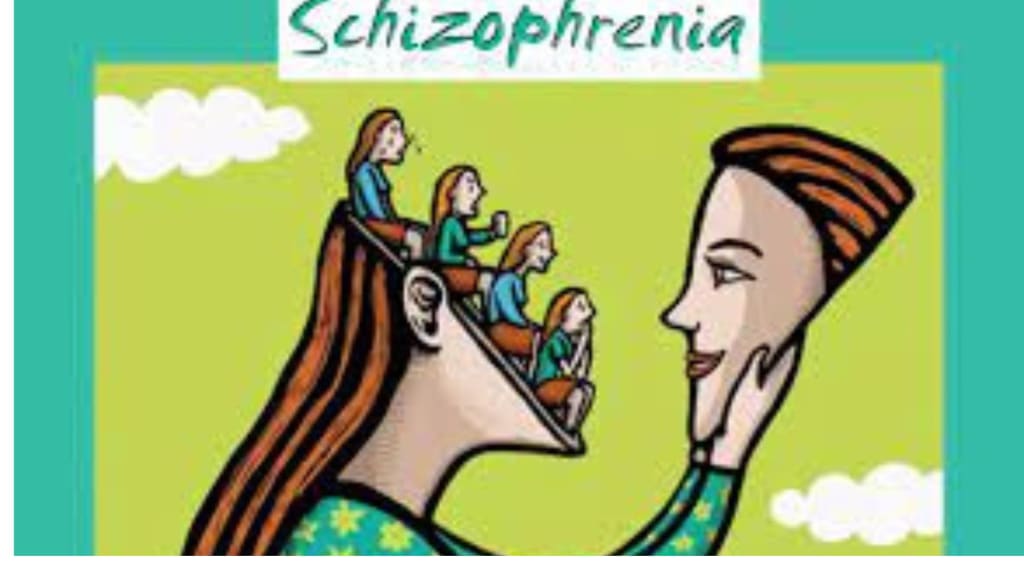Schizophrenia facts and life expectancy
While schizophrenia can be a debilitating mental illness, people with the condition can lead relatively normal lives.

What is Schizophrenia?
Schizophrenia is a mental disorder that causes people to hear voices or see things that are not there. It also has other symptoms, such as bizarre behavior and difficulty thinking clearly. Schizophrenia facts can be genetic in some cases but not in all. It is a chronic condition that lasts a longtime and often worsens without treatment.
While there is no cure for schizophrenia, it is possible to manage the condition with medication and therapy. People with schizophrenia can lead everyday, productive lives if they get the necessary treatment.
Schizophrenia is a mental illness that disrupts a person’s capacity for clear thinking, feeling, and behavior. Schizophrenia patients may appear to have lost all sense of reality. They could be able to hear or see things that others cannot. They might assume false beliefs.
Causes of Schizophrenia
Causes could be psychological, environmental, physical, or genetic. These factors may sometimes combine to trigger this mental condition. When discussing genetic factors, a single gene can’t be blamed for running in families. Neurotransmitters are our body’s chemicals that help carry messages between the brain and cells.
Dopamine and serotonin are two major chemicals known for sending emotional messages. Researchers have found changes in levels of these two chemicals in schizophrenic patients. There are opportunities for drug addicts as well, but they have yet to be proven.
Signs and Symptoms of Schizophrenia
The signs and symptoms of schizophrenia can vary significantly from person to person. Some people might only have a few symptoms, while others might have several. Schizophrenia’s most typical signs and symptoms include:
Delusions: erroneous beliefs that are unjustified by reality.
Hallucinations: seeing or hearing things that are not there.
Disorganized thinking: difficulty organizing thoughts and following a train of thought.
Inappropriate emotions or flat affect: Appearing emotionless or “blank.”
Social withdrawal: withdrawing from social interactions and activities.
Decreased motivation: lack of interest in previously enjoyed activities.
People with schizophrenia may also experience problems with memory, focus, and concentration.
Schizophrenia facts: It may be genetic.
Schizophrenia is difficult to define genetically. Scientists are having difficulty identifying the genes where the illness starts, which makes assessing if schizophrenia is inherited from your mother or father one of the most challenging tasks. A study found that eight distinct genetic abnormalities contribute to schizophrenia. The study also concluded that environmental factors might have a nearly equal role in developing the condition as hereditary ones. Primary
What happens when your parent is Schizophrenic?
The research on the risks of acquiring schizophrenia based on a family member with the disorder shows the ambiguity around the genetic basis of the condition. A child with a schizophrenic parent also has a 6% chance of developing it, even though parents and children share 50% of their genes. Another illustration is the possibility that identical twins will both experience schizophrenia. Despite having the same genetic makeup, identical twins only have a 48% chance of acquiring schizophrenia if one already does.
Treatment for Schizophrenia
Most people with schizophrenia will require lifelong treatment to manage their symptoms. While there is no cure, treatment can help manage the symptoms and enable people with the condition to live everyday life.
The mainstay of treatment for it is medication. Antipsychotic medications are the most commonly prescribed medication and reduce the activity of certain chemicals in the brain. Most people with it will need to take antipsychotic medication on a long-term basis to keep their symptoms under control. In addition to medication, other forms of treatment, such as psychotherapy and support groups, can also help manage it.
Psychotherapy can help people with schizophrenia understand and cope with their condition. Support groups provide a forum for people with schizophrenia to share their experiences and offer support to one another
Schizophrenia person’s life expectancy
It is possible to live everyday life with schizophrenia, but it requires effort and support. There are medications and other treatments available that can manage the symptoms of it and help people function in their day-to-day lives.
People with it may need to take long-term medication to control their symptoms. They may also need to see a therapist or counselor to work on managing their condition. It is essential to stay in treatment and follow your doctor’s instructions.
Living with it can be challenging, but there are ways to cope. Some people find support groups helpful. Others find that counseling or therapy helps them manage their condition. It is essential to find what works for you and stick with it.
Recovery from Schizophrenia
People with it can recover and live everyday lives. There are many treatments available that can help manage the symptoms of schizophrenia, including medication, therapy, and support groups. With proper treatment, people with schizophrenia can lead fulfilling lives. Suicidal behaviour and thoughts are common schizophrenia facts among people with this disorder.
If you or a loved one is struggling with it, contact the National Alliance on Mental Illness (NAMI) Helpline at 1-800-950-NAMI (6264) or text “NAMI” to 741741 to be connected to a free, trained crisis counselor.
Conclusion
While schizophrenia can be a debilitating mental illness, people with the condition can lead relatively normal lives. With the proper medication and support from family and friends, people with it can lead happy and fulfilling lives. If you or someone you know has been diagnosed with it, know that hope and help are available.
Interesting Schizophrenia facts include the fact that they do not have multiple personalities. They express both positive and negative symptoms.
Self-care is essential in handling this condition. You have to be healthy and should avoid driving or falling into accidents. You have to be extra cautious about your behavioral changes. Prepare yourself mentally. You can communicate your symptoms or worries with the team more quickly if you get along well with them. The more they know about you, the better they can help you.
About the Creator
Enjoyed the story? Support the Creator.
Subscribe for free to receive all their stories in your feed. You could also pledge your support or give them a one-off tip, letting them know you appreciate their work.





Comments
There are no comments for this story
Be the first to respond and start the conversation.